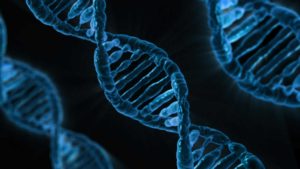If you have chosen to read this article, there is a good chance that you or a loved one are struggling with the impact of chemical dependency. Maybe the content of this article can give you some hope and insight and guide you in the direction of the helping options available for lasting chemical dependency recovery for you or your loved one.
 When speaking of someone that struggles with addiction, it is important to use ‘person first’ language when defining this individual. San Diego Christian Counseling emphasizes that rather than referring to these individuals as “addicts” or “alcoholics”, defining them as those “struggling with addiction”, or “struggling with alcoholism” is more appropriate in highlighting the behavior associated with the struggles that they face.
When speaking of someone that struggles with addiction, it is important to use ‘person first’ language when defining this individual. San Diego Christian Counseling emphasizes that rather than referring to these individuals as “addicts” or “alcoholics”, defining them as those “struggling with addiction”, or “struggling with alcoholism” is more appropriate in highlighting the behavior associated with the struggles that they face.
This reflects the humanity of the person, regardless of what situation they are going through, and can help them to understand that their struggle does not need to define them as a person. There is always room for change and growth.
Although some clients will refer to themselves as an “addict” or “alcoholic”, this is entirely up to them. Sometimes this allows them to take ownership of their behavior and put in the work that is required for them to change it.
Different Perspectives
Many counselors today are trained to assess and rehabilitate clients using the “systems” perspective. This includes evaluating and assessing clients with respect to how their families, jobs, schools, culture, and biology affects them. Without detailed knowledge of the context, it is hard to effectively inspire change in a client’s life.
Chemical Dependency Professionals (CDP) operate as “first responders” when it comes to chemical dependency. The client’s pattern of using is considered so that effective coping skills may be developed alongside the client to combat drug use.
CDP’s usually have a large load of clients (often more than 100) and only consult with them on a monthly basis. This can be problematic as they often do not have the time to explore the underlying issues that led to the client’s drug use.
 There are some CDP’s that recognize this lapse in care and will refer their clients to other agencies that are able to focus attention on these root issues. This can help the client to be more involved in their recovery.
There are some CDP’s that recognize this lapse in care and will refer their clients to other agencies that are able to focus attention on these root issues. This can help the client to be more involved in their recovery.
After the extended use of drugs, quitting can produce major withdrawal symptoms which can represent a significant obstacle. While methadone can be effective for reducing the cravings and dulling the withdrawal symptoms without getting clients high, going off methadone can produce the same types of withdrawal symptoms. Because of this, clients occasionally choose to take it regularly for a very long time and gradually taper off over a period of years.
What is Chemical Dependency?
Chemical dependency is often used casually, so it is easy to become desensitized to its serious nature. It is common to distinguish between alcoholism and substance abuse disorders, and while different drugs have a different biochemical makeup, there is a high degree of similarity between drug use and other types of chemical dependency.
In many ways, alcoholism is just like other addictions. Regardless of the type of addiction, each has developed from underlying issues of pain combined with an environment that is capable of handling it. Although we said that alcohol is like other drugs, it does stand out in one respect, and that is that it is easy to obtain.It is legal to purchase and sell alcohol to the general population.
Therefore, it is “legal” for an individual to have issues with alcohol abuse. This ease of access is different from other drugs that require undercover use to avoid run-ins with the law, which can be a major barrier to receiving treatment.
There are a number of opinions about what chemical dependency is. A popular understanding of chemical dependency regards substances such as heroin (that has an extremely high addiction probability from just one use) as having some sort of chemical “hook.”
Then there are those that view dependency as an issue that essentially moral. Many churches today view addiction as something that can be controlled through spiritual and theological intervention, and oneness with a higher power that will grant them the strength to avoid such abuse as they reform their lifestyle to reflect this higher power’s moral commandments.
Finally, there is the view that those who struggle with addiction possess an “addictive personality.” But what are the facts?
What we do know, is addictions that run in families are developed in a biological and/or an environmental context, making an individual from that family more likely to struggle with the addiction as well. This genetic predisposition and/or cultural atmosphere seems to pass on the addictive tendency from generation to generation.
 The fact that most drugs possess a withdrawal component once use is ceased also gives credence to the idea that biological components play a part in the use of drugs. From a Biblical perspective, it would appear that Christ commands us to “not be drunk with wine,” because that would be a wasteful (and thus sinful) use of our bodies which are to be “filled with the Spirit” instead. But the theory of chemical “hooks” seems to be obsolete.
The fact that most drugs possess a withdrawal component once use is ceased also gives credence to the idea that biological components play a part in the use of drugs. From a Biblical perspective, it would appear that Christ commands us to “not be drunk with wine,” because that would be a wasteful (and thus sinful) use of our bodies which are to be “filled with the Spirit” instead. But the theory of chemical “hooks” seems to be obsolete.
The next section is a summarization of a TED Talk delivered by Johann Hari, called “Everything You Think You Know About Addiction is Wrong”. Hari suggests that the theory of chemical hooks came from a lab experiment in which rats were offered regular water or heroin-laced water. In this experiment, the rats most often chose heroin water and were unable to refuse it. This led scientists to conclude that rats were then “hooked” on the heroin drug.
In a different experiment, however, with identical variables, the rats were not isolated in cages throughout the experiment and were provided with living quarters among a community of rats where the environment was lively and stimulating. When provided with this type of living environment, rats rarely chose to drink from the heroin water.
Although this experiment cannot be conducted on humans, there are pseudo-experiments that reinforce this concept of drug addiction. In the Vietnam war, there was an epidemic of heroin use among soldiers. The fear was that once these soldiers returned home, they would struggle with heroin addiction. However, once the environment changed, and they were able to return to their native country, most were able to give up heroin use.
This behavior conflicts with the chemical hooks theory. When in a restricted environment, heroin use seems to be a good option to someone that has used in the past. However, as individuals change their environment, and begin to live happier and more fulfilling lives, there isn’t a felt need for such short-term fixes.
How does this implication effect our view of addition? Addiction should be viewed as a multifaceted problem. One of the key elements that is overlooked by many is the impact of the social environment. It is important to improve the addict’s social environment. Building their support system, finding and securing employment or a volunteer position to constructively use their time, will ultimately bring fulfillment.
 Clients want to have a life that is worth remaining sober for. Regardless of the desire or need for change, if an individual’s surroundings do not provide meaning or fulfillment, it will remain difficult for them to want to stop using drugs. This applies to drug use, as well as to other forms of addiction.
Clients want to have a life that is worth remaining sober for. Regardless of the desire or need for change, if an individual’s surroundings do not provide meaning or fulfillment, it will remain difficult for them to want to stop using drugs. This applies to drug use, as well as to other forms of addiction.
Many of the things that we talk about being addicted to (such as our video games, drugs, phones, porn, food, etc.) boil down to fundamental discontentment. Therapy can dig deeper into the underlying issues experienced by an individual that leads them to addiction, and help find ways to eliminate the stimulus that is used as a coping mechanism for these issues.
The goals that should be set for those struggling with addiction include: 1) getting sober, and 2) staying sober. Although these goals can look like an insurmountable task for the individual, it is important to begin by reducing the use of the addictive substance and then formulate baby steps toward developing a more positive social environment.
We are social creatures because God made us that way, and lasting chemical dependency recovery will need impactful positive relationships. Seek out a chemical dependency counselor at San Diego Christian Counseling to help.
“Handcuffed Criminal”, Courtesy of Niu Niu, Unsplash.com; CC0 License; “Trying,” courtesy of Tyler Nix, unsplash.com, CC0 License; “DNA”, Courtesy of PublicDomainPictures, Pixabay.com, CC0 License; “Hope,” courtesy of Matese Fields, unsplash.com, CC0 License


